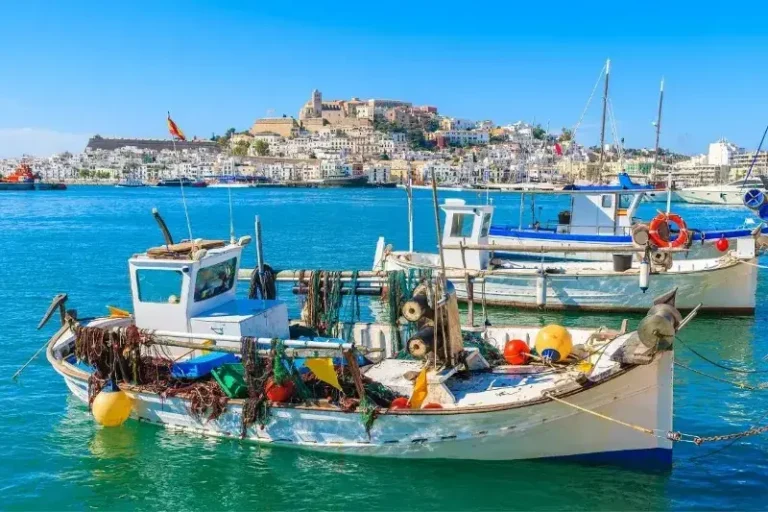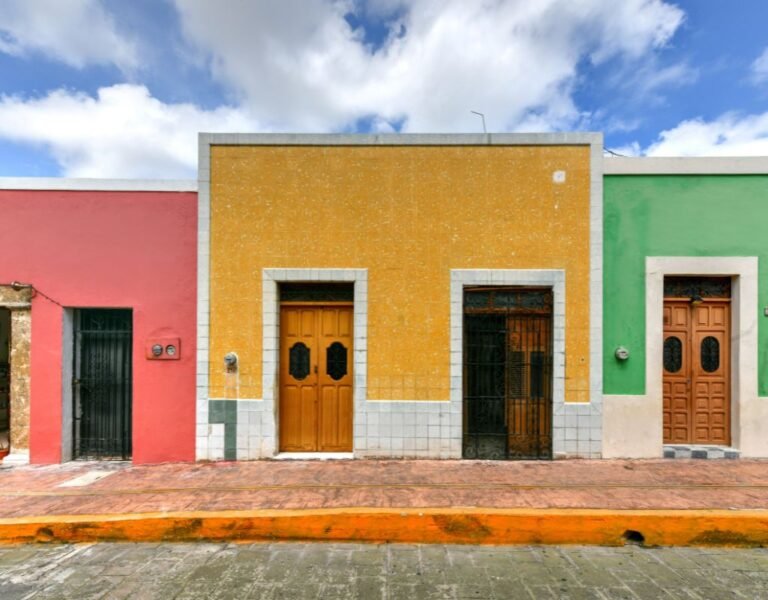Is Colombia Safe To Live In?
|
If you’ve spent any time on expat and tourist forums, Colombia has probably caught your eye. It has received over 16 recognitions in the tourism sector, including from Condé Nast and The New York Times. But visiting is one thing, putting down roots is another. Is Colombia safe to live in?
Safety is a delicate topic, but the trends in Colombia are positive. While its history of conflict once gave it a reputation for violence and instability, it has transformed significantly over the past two decades.
Robbery, theft, and petty crimes like muggings and phone snatchings are still a concern, but Colombia is increasingly a safe destination.
Let’s take a closer look at safety in Colombia so you can decide whether it’s a good fit for you.
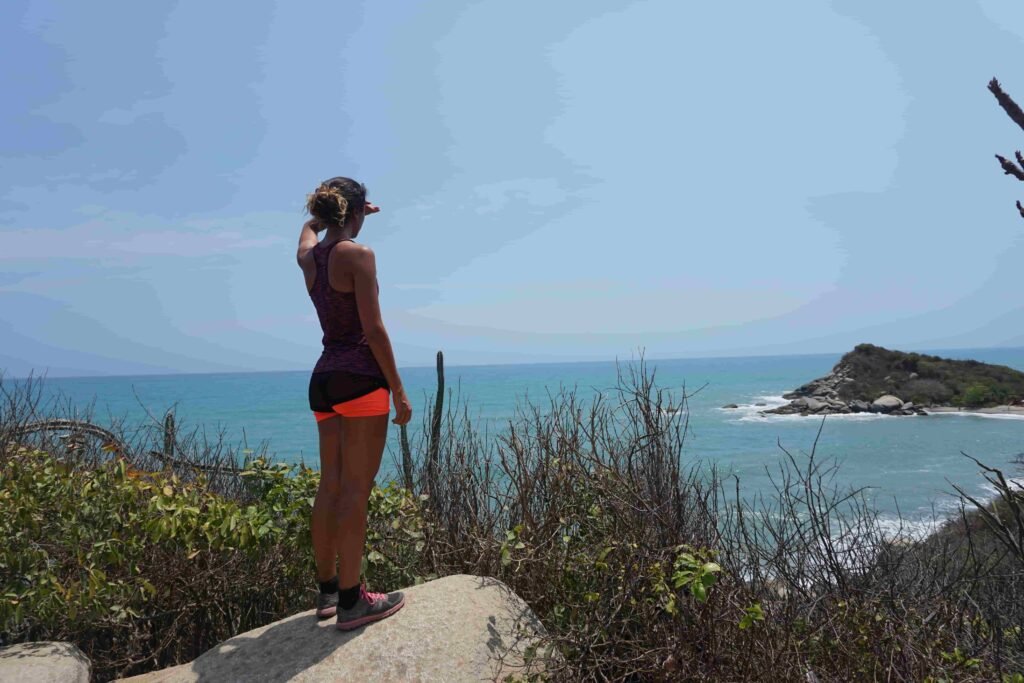
Is Colombia Safe to Live In?
Colombia’s 50-year civil war between the government, crime syndicates, far-right paramilitary groups, and far-left guerrilla groups made it a risky place to visit. It gained a reputation for drug cartels, violence, homicides, and kidnappings. But in 2016, the Colombian government successfully signed a peace agreement with The Revolutionary Armed Forces of Colombia (FARC).
This peace agreement didn’t make the country’s problems disappear overnight, but Colombia has come a long way. Over the past two decades, homicides have dropped by 50% and kidnappings by 92%. Life is improving for locals and expats alike. As far as tourism goes, Colombia has been touted as the new darling of South America, drawing almost six million visitors in 2023.
Petty crimes such as muggings and phone snatchings are common, especially in major cities. Robbery and theft are also issues, so it is vital to be vigilant about security. Fortunately, the country continues to make strides.
For example, Medellín was once a hotbed of violent crime due to Pablo Escobar and the Medellín Cartel, but now has a better safety rating than London, Paris, San Francisco, and Washington D.C.
Surveillance cameras in places such as Medellín and Bogotá have allowed police to monitor crowded areas and respond rapidly to problems. They are helpful and friendly and purportedly less corrupt than police in other parts of Latin America.
Of course, Colombia still suffers the ramifications of the civil war. Many people were displaced during the conflict and live in barrios populares, or slums, and have very little. Residents of the departments of Arauca, Cauca, and Chocó still suffer from displacement and forced confinement due to guerrilla and paramilitary groups that stepped into the void left by FARC. It’s clear that Colombia still has work to do.
However, there are many safe cities and neighborhoods in Colombia, just as there are safe regions and neighborhoods in New York or Los Angeles. There’s a reason over 20,000 foreigners have made it their home.
Colombia is cheap, easy to navigate, and beautiful. Its cities offer modern amenities, world-class healthcare, and safe and efficient public transportation. Locals are dedicated to ridding Colombia of its sordid security reputation and have made significant improvements in the past couple of decades.
There’s no reason why you can’t enjoy life in Colombia as long as you follow the safety tips.
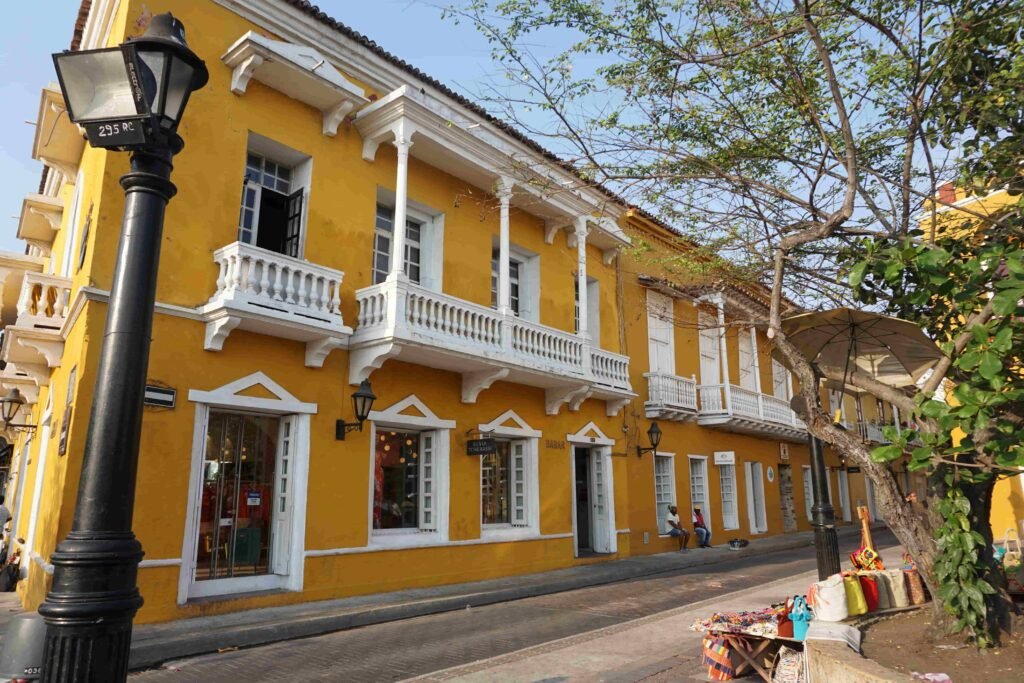
Colombia Safety Tips
Staying safe in Colombia means making these practices a way of life, turning them into habits that come naturally, and being calmly and unflinchingly vigilant. Vigilance doesn’t mean being paranoid or terrified, but it does mean not getting complacent.
Of course, following these tips doesn’t mean nothing will ever happen to you. Sometimes, people get unlucky. They are in the wrong place at the wrong time. But these tips will keep you safer, helping you avoid becoming a target.
📌 Choose a Safe Area to Live
Just as you wouldn’t settle down in a U.S. neighborhood rife with violence, choosing a safe city and neighborhood in Colombia is equally essential. Thoroughly research the areas you’re interested in, get advice from locals and expats, and rent a place in your neighborhood of interest before buying property.
For extra safety, consider lodging in a place with 24/7 security. Gated communities with private security and apartments with guards are good choices if they fit your lifestyle preferences and budget.
📌 Practice Situational Awareness
Staying aware of your surroundings is a habit worth building no matter where you live. Not only does it help you avoid pickpockets and petty theft, but it also keeps you alert to anything that feels off. Trust your instincts. If something doesn’t seem right, head to a safer location.
At home, pay attention to what is happening in your neighborhood.
Part of situational awareness also means being alert to scams. A common one to watch out for when first entering Colombia is real estate rental scams (see our post on moving to Colombia for more about this).
📌 Blend In
One of the best ways to prevent being targeted is to blend in. Many Colombians only wear shorts if they are at the beach or the gym. They prefer wearing jeans and a nice shirt or blouse to appear professional. However, avoid wearing expensive clothes and jewelry that will mark you as a target.
Talking loudly and speaking to others or on your phone in a language other than Spanish will draw attention to the fact that you are a foreigner and may have stuff worth stealing. So does wandering around looking lost.
📌 Hide Your Valuables
Many Colombians were displaced by the civil war and live in extreme poverty. Even if you live on a small budget and don’t have much (comparatively speaking), you likely have more than they do. That’s why foreigners may be singled out for petty theft and robberies. The last thing you want is to prove them right by showing off what you have.
When you go out and about, only take as much cash as you need. Consider using a money belt if you need to carry more with you and for your documents. Keep money in a front pocket.
If you need to use your phone, use it inside a café, shop, or restaurant, not on the street. The same goes for other electronic gadgets.
This doesn’t mean you can never use your phone to take a picture but stay situationally aware.
Tip: For a small monthly fee, the Prey app will allow you to track a stolen device, turn on the camera remotely to photograph the thief, delete your data, and message the thief.
📌 Keep Your Possessions Secure
When you are out in public, it’s a good idea to keep your belongings close. If you’re moving through crowded areas and notice the locals wearing backpacks in front, do the same. Choose bags that close securely.
At home, hide your important documents and extra money in a safe place–but not necessarily in a safe. Having a safe can advertise that you have things worth stealing.
Knowing how to hide stuff wisely is a good skill to develop. According to an expat group focused on safety in Panama (and likely relevant to Colombia), burglars typically search for valuables and hidden drugs inside the freezer, drawers, desks, jewelry boxes, and the toilet tank.
If you have multiple credit cards, consider hiding them in different locations and keeping cash in several spots. Just don’t forget where you’ve put them!
Tip: Keep scans of your passport and other documents in your email if you need to access them.
📌 Deter Criminals From Your Home
Some of the best ways to deter criminals is to make your home look secure and hard to break into but not so much like a fortress that it seems you have hoards of wealth to steal.
Ways to keep your home secure include installing motion sensor lights, having an outdoor dog that will bark at intruders, installing security cameras, and using sirens.
Consider getting a loud horn (like a boat horn) to scare off criminals if you hear them breaking in. It’s also wise to pre-plan an escape route to leave your home if necessary.
📌 Use Safe Transportation Methods
Fake or illegal taxis are a big problem in Colombia. Never hail a taxi off the street, even if it looks legitimate. Some taxis work with criminals who carry out express kidnappings, where the passenger is forced to withdraw money from an ATM before being released.
Instead, use a taxi app like EasyTaxi or ride-sharing services like Uber, In-Driver, and DiDi.
Download an offline map to your phone to guide yourself and your driver home if necessary, but don’t use your phone on the street.
Keep your vehicle windows rolled up.
📌 Be Extra Vigilant At Night
As a rule, crime is far more prevalent at night. If you need to go out at night, don’t go alone, and don’t go on foot. Instead, take a trusted form of transportation and buddy up.
📌 Don’t Do Drugs
Not only are drugs illegal, but they will fast-track you to having security problems. People who move to Colombia to indulge in vices like drugs and prostitution are far more likely to be robbed or end up in prison.
Locals dislike these activities because drug cartels have wreaked devastation in their country. Show respect and steer clear. You’ll be doing yourself and everyone else a favor.
📌 Be Safe On Nights Out
Spend any amount of time in Colombia, and you’ll likely hear horror stories about drink spiking, especially with scopolamine, a drug sometimes used to spike drinks. Scopolamine, known colloquially as borrachero and devil’s breath, is derived from Angel’s Trumpet, a plant common to the Andes.
The symptoms of an overdose include a rapid heartbeat, dry flushed skin, fever, blurred vision, confusion, amnesia, hallucinations, headaches, slurred speech, and paranoia. In extreme cases, it can cause seizures and coma.
Who is most often targeted for drink spiking? It’s not who you think. A study conducted by the Colombian Neurological Association (ACN) found that in Bucaramanga, 70% of the victims were foreign men ages 30 to 45 who looked wealthy. In 94% of the cases, the perpetrator’s goal was robbery.
The takeaway?
- Buy your own drinks and food.
- Never leave your drink or food alone.
- At parties, opt for beverages in unopened bottles.
- Go with friends and watch each other’s backs.
- If you think a friend has been drugged, don’t leave them alone where they could fall victim to criminals. Get them medical attention as soon as possible.
- If you think you’ve been drugged, contact someone you trust and/or security or the management at the bar.
- Don’t accept rides from strangers.
- If needed, contact emergency services yourself.
📌 If The Worst Happens, Don’t Resist
It’s impossible to know how you’ll react during a robbery because your fight-or-flight reflexes will kick in. But if possible, give the attacker your belongings without resisting. It isn’t worth suffering bodily harm or risking your life over. Stuff can be replaced.
📌 Know What to do in an Emergency
While we hope you’ll never need this information, it is good to have a game plan if something happens. Keep the following Colombian emergency numbers on hand:
✔️ National emergency number (24-hour general line): 123
✔️ Medical emergencies: 125
✔️ Toxicological Center: 136
✔️ Fire: 119
✔️ American embassy emergency number: (1) 2752000
✔️ Tourist police: dial (1) 3374413
✔️ Registering with your embassy is a great safety practice as well.

Safest Places To Live In Colombia
There are many wonderful places to live in Colombia, from Cartagena on the Caribbean Coast to Manizales in the mountainous coffee-growing region. While nowhere is perfectly safe, these places have good reputations and are worth checking out.
No matter where you live, you should follow all the safety tips above.
👍🏻 Manizales
Lush green hills surround the mountain city of Manizales. This city of about 458,000 is located in western Colombia and produces high-quality coffee. Temperatures are warm and spring-like. Although crime can happen anywhere, Manizales is considered relatively safe.
Tip: Other towns to consider in the area include Pereira, Quindio, Risaralda, and Caldas. These towns, like Manizales, are in Colombia’s coffee region and are beautiful, relaxed, and reasonably safe.
👍🏻 Medellín
Medellín used to be known for violent cartel crime, but it has turned a new leaf. It is now safer than many other major cities in South America and is a favorite among expats and digital nomads. Medellin is a vibrant hub of fashion, art, and music with a fantastic metro system and modern amenities. It’s been called the Silicon Valley of Latin America.
Consider living in Los Laureles. It’s been named one of the coolest neighborhoods in the world.
👍🏻 Salento
The picturesque and charming town of Salento is another safe place to live in Colombia. Touted as one of the inspirations for Disney’s Encanto, Salento is known for its small-town feel and proximity to the Valley of Cocora, home to the tallest palm trees in the world.
Despite its traditional vibe, it is home to great restaurants, souvenir shops, and hotels. Salento is a favorite among tourists.
👍🏻 Cartagena
So far we’ve mentioned places in the more temperate weather regions of Colombia. But if you prefer the coastal heat and proximity to beaches, Cartagena could be a great choice. This historic city on the Caribbean coast brims with colonial architecture and a lively ambiance.
Like any large city, Cartagena has safe and unsafe areas. Some of the safest places to live here include Bocagrande, San Diego, and the Historic Center.
Tip: Santa Marta, just four hours up the coast from Cartagena, is another good option.
👍🏻 Tunja
High in the Andean mountains lies the small city of Tunja. During colonial times, it was important for its emerald and gold deposits. It is home to many beautiful historic buildings and is the capital of Boyaca state. It has a reasonably low crime rate.
At over 9,000 feet in elevation, cool weather is the norm.
Dangerous Places in Colombia
There are also hazardous regions that you should avoid at all costs. Do not travel to the departments of Norte de Santander, Arauca, Cauca, and Chocó. Although the 2016 peace accords brought positive changes to much of Colombia, armed groups and paramilitary stepped into the void left by FARC, causing massive security problems in these areas.
Avoid the Venezuelan and Colombian border, as it is also a perilous area.
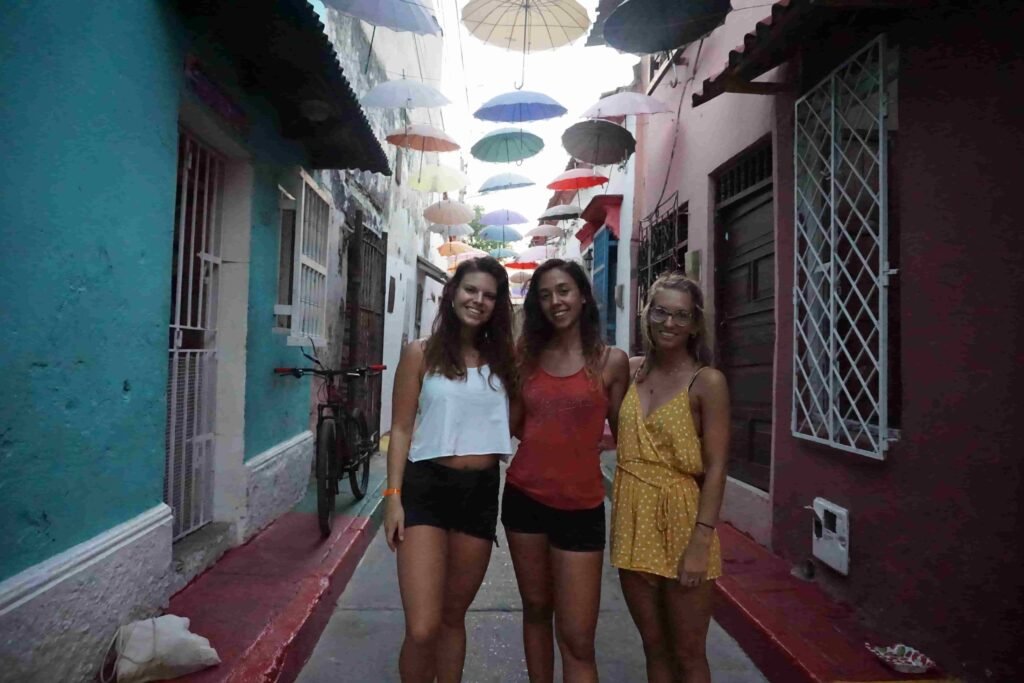
Frequently Asked Questions: Is Colombia Safe To Live
Yes, American tourists can travel safely to Colombia, but they should avoid dangerous regions and neighborhoods and implement safety protocols. Vigilance is essential to avoid falling victim to theft and muggings. Keep your cell phone and valuables hidden while on the street.
Manizales is considered one of the safest cities in Colombia, but Tunja is another secure alternative.
Expats are drawn to Colombia for its low cost of living, beautiful landscapes, inviting culture, and lovely climate. It is best for those seeking cross-cultural experiences who speak Spanish or are willing to learn.
Colombia can be a safe place to retire as long as you choose your city and neighborhood with care and are vigilant about following safety practices.
Conclusion
So, is Colombia safe to live in? This South American nation has made significant progress in throwing off its poor safety reputation and lowering crime rates. Its stunning landscapes, low cost of living, world-class healthcare, and growing expat community make it a wonderful place to call home.
While it may not be the best choice for people who’ve never spent time overseas, seasoned travelers and expats are bound to fall in love. By staying vigilant, following safety tips, and choosing reputable neighborhoods, you can enjoy everything Colombia offers.
What do you think? Are you ready to apply for a visa?
Hello and Welcome!

We started our family travel blog in hopes of supporting other families move abroad and travel the world. Through straightforward, sincere and supportive information we hope to provide a reliable guide for those moving overseas with a family and traveling the globe.




